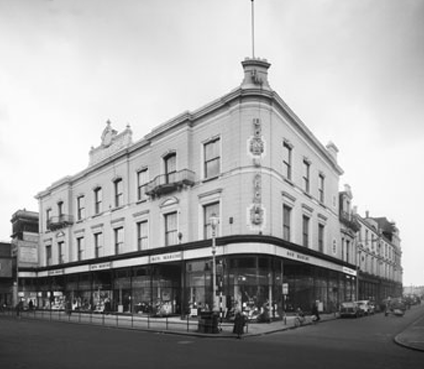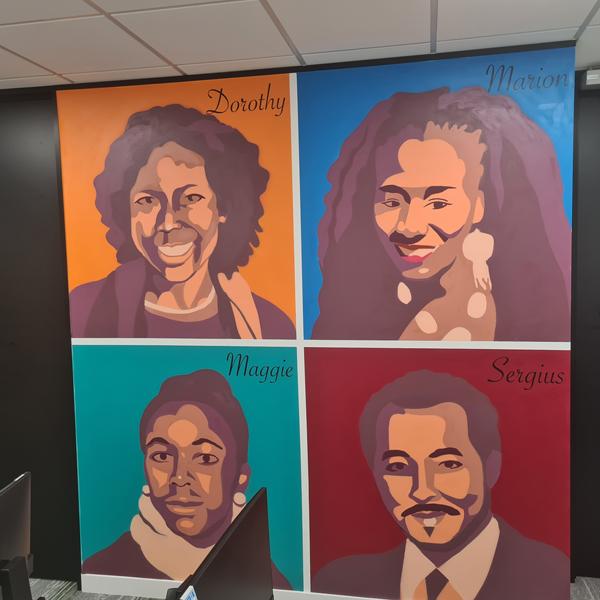Founded in 1987
 Ekaya Housing Association was founded in 1987 bringing together the critical work of two Lambeth hostels in supporting young, single black women living in London.
Ekaya Housing Association was founded in 1987 bringing together the critical work of two Lambeth hostels in supporting young, single black women living in London.
Ekaya, is a not for profit organisation, incorporated on 2 June 1987, under the Industrial and Provident Societies Act 1965. It operates within the housing and social care industry.
Ekaya Housing Association’s first Head Office, was based in Bon Marche, Brixton 1987 (pictured)
Founding Members
 Life for Ekaya began with a group of black professionals from the housing and social care sectors identifying a need for black, single teenage mothers to be supported and enabled to parent their children safely whilst learning critical life skills.
Life for Ekaya began with a group of black professionals from the housing and social care sectors identifying a need for black, single teenage mothers to be supported and enabled to parent their children safely whilst learning critical life skills.
Over the years, Ekaya has moved from being a grant-aided organisation to a business with assets worth several millions of pounds.
This image is a mural of our founders, Dorothy Quest, Marion Schumann, Maggie Scarlett and Sergius Ephson.
Why Ekaya was Founded
"As a housing professional working for Lambeth Council back in the 1980's, I had first-hand experience of the discriminatory policies and practices faced by black people. Access to housing was via the housing waiting list or as a homeless person. The allocations policy was discriminatory on two levels. In addition to points for room deficiency, applicants on the waiting list were awarded residential points. I'm sure you can see the implications for black people.
"Black families were overrepresented in the homeless queue. The unwritten allocations policy was to identify properties that were offered only to white people. This resulted in the concentrations of black families on specific estates and prevented their re-housing in the south of the borough.
"There were numerous racist policies at that time, so when Sergius invited me to join Marion, Maggie, and himself to form a housing association that would provide access to decent accommodation that meets the needs of young black women, I was delighted."
Dorothy Quest
"In the early days our drive was to educate and empower our teenage single mums in the hope of improving their lives, giving them access to decent housing and employment/educational opportunities under the moto 'community minded, yet commercially aware'."
Marion Schumann
